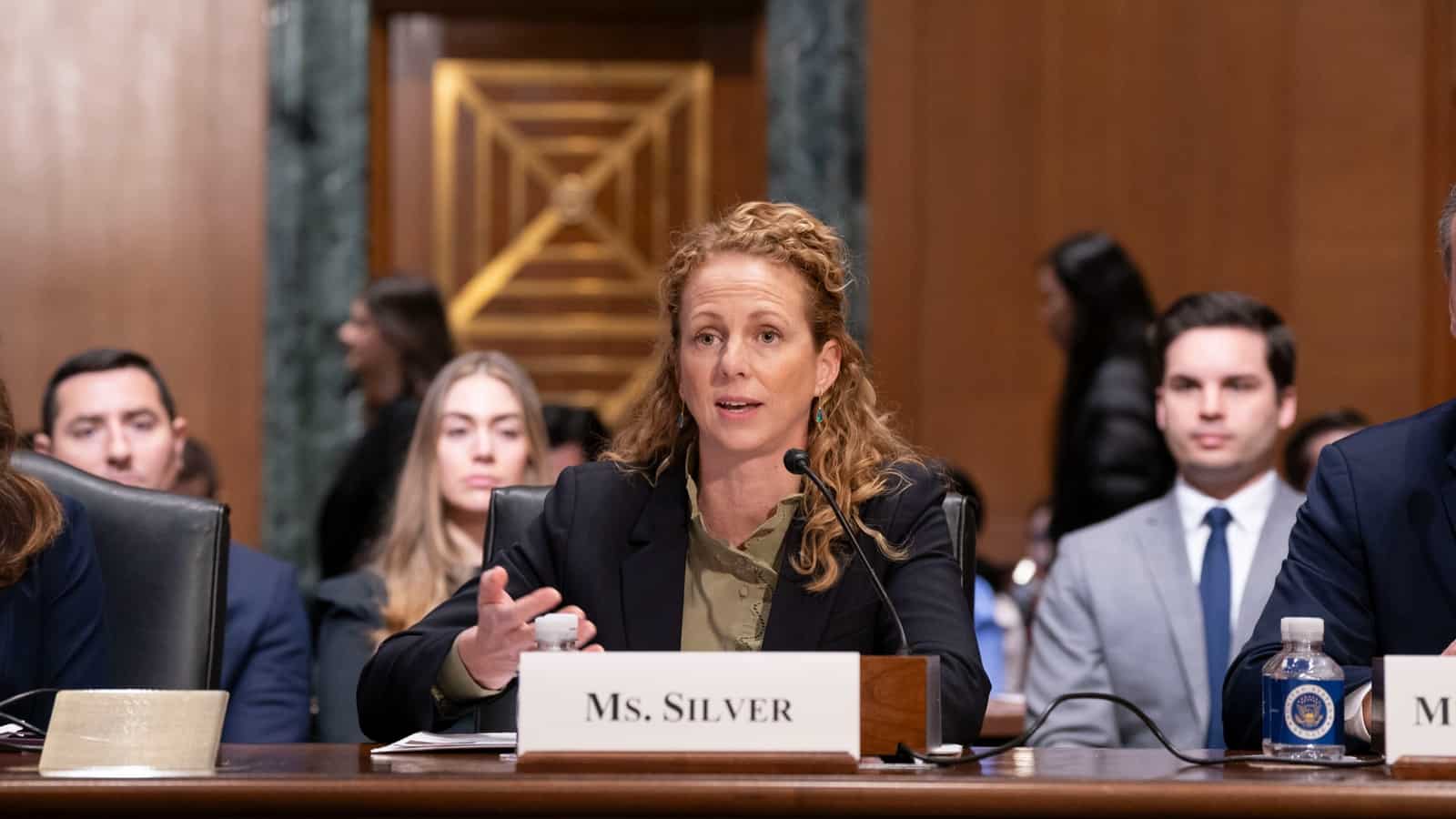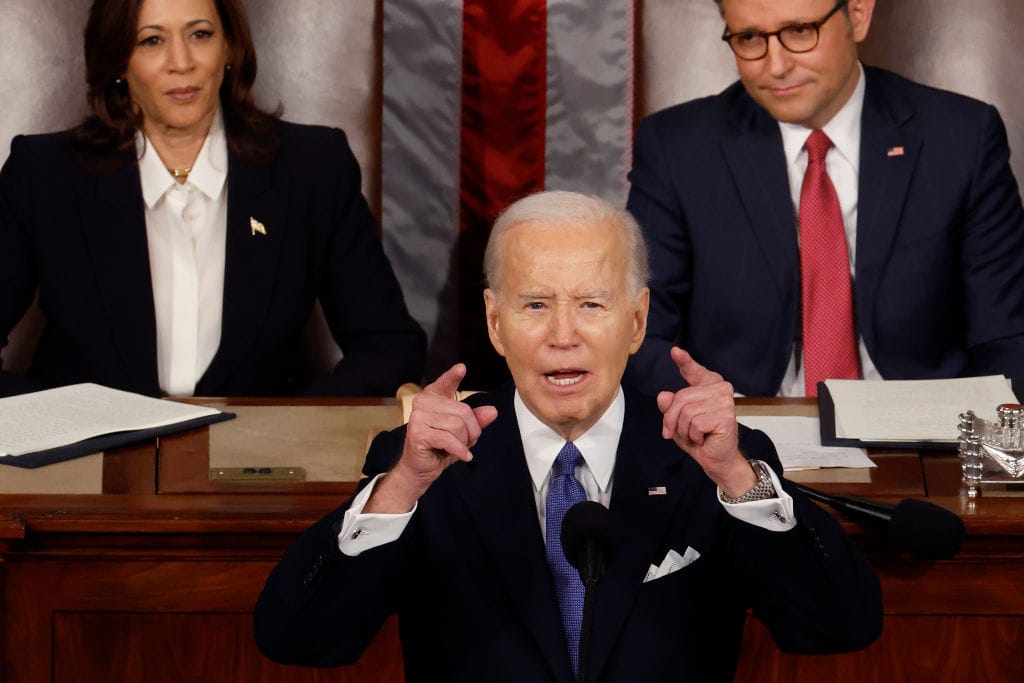NAM Poll Shows Americans Overwhelmingly Oppose LNG Export Pause; Support All-of-the-Above Energy Approach
Houston, Texas – The National Association of Manufacturers released the results of a new poll today showing bipartisan opposition to the Department of Energy’s freeze on export permits for new liquified natural gas projects. Respondents also strongly believe that the United States should pursue an all-of-the-above energy strategy, which includes supporting our global allies by providing cleaner, American-produced natural gas.
“The American public agrees: LNG exports are critical to U.S. energy security, creating well-paying jobs and supporting our allies in Europe and Asia. This poll underscores the need for President Biden to immediately direct the Department of Energy to roll back this misguided and counterproductive policy,” said NAM President and CEO Jay Timmons. “President Biden’s manufacturing legacy is at risk if the DOE and other federal agencies continue to act in direct contradiction to the stated goals of the president and the American people of bolstering manufacturing competitiveness in the U.S.”
The NAM analytics team conducted the poll March 15–18 and collected 1,000 responses from a nationwide sample of registered voters.
Key Findings:
- 87% of respondents agree the U.S. should continue to export natural gas.
- 76% of respondents agree with building more energy infrastructure, such as port terminals, here in the U.S.
- 74% of respondents agree with boosting production of domestic oil and natural gas in the U.S. instead of depending heavily on foreign energy sources.
- 72% of respondents prefer that American energy policy use an all-of-the-above strategy that includes oil and natural gas and renewable energy sources.
- 86% of respondents agree that we should change the permitting system so it doesn’t take so long for new energy infrastructure projects to be approved.
Background: On Jan. 26, the DOE announced a freeze on export permits for new LNG projects. Europe is the primary destination for U.S. LNG, accounting for 67% of total exports in the first six months of 2023. According to the DOE, Russian natural gas exports have 40% more global warming potential than U.S. LNG across 20 years. Russian gas also had 20% more global warming potential than European coal.
Read the full poll results here.
-NAM-
The National Association of Manufacturers is the largest manufacturing association in the United States, representing small and large manufacturers in every industrial sector and in all 50 states. Manufacturing employs nearly 13 million men and women, contributes $2.85 trillion to the U.S. economy annually and accounts for 53% of private-sector research and development. The NAM is the powerful voice of the manufacturing community and the leading advocate for a policy agenda that helps manufacturers compete in the global economy and create jobs across the United States. For more information about the NAM or to follow us on Twitter and Facebook, please visit www.nam.org.
Americans Oppose LNG Export Pause, NAM Poll Finds

Americans overwhelmingly support exporting U.S. natural gas, a new NAM poll reveals.
What’s going on: In addition to wanting continued exports of LNG, respondents believe the U.S. must boost its production of oil and natural gas, build more energy infrastructure and reform the broken permitting system, according to the findings of an NAM survey of 1,000 registered voters conducted March 15–18.
- In January, the Biden administration announced a moratorium on LNG export permits.
- Europe is the primary destination of exported U.S. LNG.
The details: Among the survey’s key findings:
- Some 87% believe the U.S. should continue exporting natural gas.
- About 86% say the permitting system must be changed so energy projects are approved and online in less time.
- Approximately 76% say the U.S. needs more energy infrastructure, such as port terminals.
- About 74% say the U.S. needs to increase domestic oil and natural gas production.
- And 72% would like to see the U.S. use an all-of-the-above energy approach that includes both traditional and renewable energy sources.
The last word: “The American public agrees: LNG exports are critical to U.S. energy security, creating well-paying jobs and supporting our allies in Europe and Asia,” said NAM President and CEO Jay Timmons.
- “This poll underscores the need for President Biden to immediately direct the Department of Energy to roll back this misguided and counterproductive policy.”
NAM: Make Employer-Sponsored Health Insurance Easier

Manufacturers are committed to providing employer-sponsored health insurance to their workers, the NAM told Congress late last week—and that’s why any changes made to the Employee Retirement Income Security Act of 1974 should facilitate rather than hamper those offerings.
What’s going on: “ERISA underpins manufacturers’ ability to provide health insurance to their employees,” NAM Vice President of Domestic Policy Charles Crain said in response to a call by the House Committee on Education and the Workforce majority for comments on how to improve ERISA as the law’s 50th anniversary nears.
- “The law allows manufacturers to provide uniform benefits to workers located across multiple states, and to tailor those benefits to meet the unique needs of their workforces.”
Why it’s important: Manufacturers have continued to offer high-quality health care plans to their employees—even absorbing cost increases in recent years to keep premiums affordable—but they “increasingly find their efforts to be responsible stewards of their health plans undermined by the complexities, bureaucracy and ineffective design of the broader health care system,” Crain told the committee.
What should be done: It is ERISA’s federal preemption of state and local laws that allows manufacturers to offer uniform health benefits, Crain continued, and that preemption must be preserved.
- “Eroding or eliminating preemption would make it significantly more difficult for manufacturers operating in multiple states to offer their employees health insurance because the manufacturer would be forced to comply with cumbersome and potentially conflicting state-based rules, a costly and untenable situation,” he said.
- In addition to maintaining ERISA preemption, Congress should seek to “make health care data more accessible and user-friendly for employer plan sponsors,” and reduce regulatory burdens on employers.
- Given that pharmacy benefit managers contribute to the increasing costs of providing employer-sponsored health care, the NAM also continues to call for PBM reform to increase transparency into these underregulated actors.
NAM Echoes Senators’ PBM-Reform Call

Pharmacy benefit managers—entities that increase health care costs for both manufacturers and manufacturing workers—are long overdue for reform, the NAM said yesterday.
What’s going on: Senate Finance Committee Chairman Ron Wyden (D-OR) and Ranking Member Mike Crapo (R-ID) announced at a Thursday press conference that they will ask Senate leadership to include in a government funding bill at the end of March legislation to rein in PBMs.
- The NAM, which has been vocal for years about the need for PBM reform , immediately joined the senators’ call for action.
- “Manufacturers stand with Chairman Wyden and Ranking Member Crapo in their calls for PBM reform as soon as possible,” said NAM Managing Vice President of Policy Chris Netram. “Manufacturers are committed to providing health benefits—with 93% of manufacturing workers eligible for employer-sponsored health insurance—even as PBMs continue to drive an increase in health care costs.”
Why it’s important: PBMs make health care more expensive for manufacturers and manufacturing workers by putting upward pressure on the list prices of medicines. Additionally, the three largest PBMs control 80% of the market, giving them tremendous leverage when negotiating contracts with manufacturing employers.
- What’s more, they operate with very little federal oversight and offer minimal transparency into their business models.
What should be done: An overhaul of the PBM framework should include solutions that effectively address rebate, fee and contract structures.
- “PBM reform, including in the commercial health insurance market, must increase transparency, ensure PBMs do not pocket manufacturer rebates and delink PBM compensation from the list price of medications,” said Netram.
Manufacturers Join Senators’ Call for Immediate Action on PBM Reform
Washington, D.C. – Following a press conference today in which Senate Finance Committee Chairman Ron Wyden (D-OR) and Ranking Member Mike Crapo (R-ID) called for pharmacy benefit manager reform, National Association of Manufacturers Managing Vice President of Policy Chris Netram released the following statement:
“Manufacturers stand with Chairman Wyden and Ranking Member Crapo in their calls for PBM reform as soon as possible. Manufacturers are committed to providing health benefits—with 93% of manufacturing workers eligible for employer sponsored health insurance—even as PBMs continue to drive an increase in health care costs. PBM reform, including in the commercial health insurance market, must increase transparency, ensure PBMs do not pocket manufacturer rebates and delink PBM compensation from the list price of medications.”
Background:
- As part of efforts to reduce health care costs for manufacturers and manufacturing workers, the NAM has advocated PBM reform consistently, including in the commercial health insurance market.
- PBMs increase health care costs at the expense of manufacturers and manufacturing workers by applying upward pressure to list prices that dictate what patients pay at the pharmacy counter, pocketing biopharmaceutical manufacturer rebates and failing to provide adequate transparency about their business models.
- The NAM supports reforms that will benefit employers by making PBM contracts more straightforward, transparent and predictable and workers by reducing the prices they pay out of pocket for their prescriptions.
- Last year, the NAM launched a six-figure television and digital advertising campaign calling for reforms to ensure PBMs pass on prescription drug discounts directly to workers and employers.
-NAM-
The National Association of Manufacturers is the largest manufacturing association in the United States, representing small and large manufacturers in every industrial sector and in all 50 states. Manufacturing employs nearly 13 million men and women, contributes $2.85 trillion to the U.S. economy annually and accounts for 53% of private-sector research and development. The NAM is the powerful voice of the manufacturing community and the leading advocate for a policy agenda that helps manufacturers compete in the global economy and create jobs across the United States. For more information about the NAM or to follow us on Twitter and Facebook, please visit www.nam.org.
Extend Pro-Growth Tax Policies, Small Manufacturer Tells Senate

If manufacturing is a team sport, the rules of the game are the U.S. tax code—and to ensure a level playing field for everyone, that code must remain constant, Ketchie President and Owner and NAM Small and Medium Manufacturers Group Chair Courtney Silver told the Senate Finance Committee Tuesday.
The main way to do it, she said, is by restoring three key tax policies: immediate expensing for domestic R&D, enhanced interest deductibility and full expensing.
What’s going on: Thanks to the 2017 Tax Cuts and Jobs Act, Silver’s family-owned, North Carolina–based precision machining company and many other manufacturers were able to grow their companies, invest in workers and give back to their communities, Silver said in testimony during the “American Made: Growing U.S. Manufacturing Through the Tax Code” hearing.
- But two years ago, “the rules of the game began to change, making it more difficult for manufacturers to thrive in America,” she went on. “Crucial policies began to expire.”
Why it’s important: If Congress does not act soon, additional pro-growth tax cuts will expire, further harming manufacturing in the U.S.
- And “more tax increases are on the way,” Silver told committee members, referring to the additional TCJA provisions scheduled to expire next year. “Other critical provisions expire at the end of 2025, which will have a direct impact on the manufacturing sector. Ketchie will be directly harmed by the loss of the pass-through deduction, the increases in our tax rates and the reduced protection from the estate tax.”
Unstoppable combination: The 2017 tax reforms, “paired with pro-growth policies like immediate expensing of capital investments, drove historic growth in the manufacturing sector,” Senate Finance Committee Ranking Member Mike Crapo (R-ID) said during the hearing, citing NAM data on the significant, positive impact of the cuts.
- Indeed, “Ketchie might not be here today if we did not have the economic boom caused by tax reform in the years prior to the pandemic,” said Silver, who called immediate expensing for domestic R&D expensing, enhanced interest deductibility and full expensing “a game-changer for the manufacturing industry.”
Team players: Congress must restore these three provisions and other critical provisions that are set to expire next year.
- “Manufacturing truly is a team sport, and you are all on that team,” Silver told the committee. “Small companies like mine are counting on you to play with us rather than against us, and to ensure that our tax code does the same.”
- The NAM has called on the Senate to advance the House-passed Tax Relief for American Families and Workers Act, which would restore the three key tax policies.
NAM Hosts German, Mexican Delegations

The NAM was host to multiple representatives and dignitaries from Germany and Mexico last week for a series of meetings aimed at strengthening the ties between the two countries and the U.S.
What’s going on: On different days last week, the NAM met with German Ambassador to the U.S. Andreas Michaelis; the leadership of the Mexican Business Coordinating Council; the presidents of the Federation of German Industries and the Germany-based Mechanical Engineering Industry Association; and a delegation from the Germany-based Transatlantic Business Initiative.
- A discussion common to all the gatherings: improving international cooperation to support closer economic partnerships between our countries.

The U.S.–Europe relationship: In a meeting with Michaelis, Germany’s ambassador to the U.S. since August 2023, the NAM expressed the importance of a continued, positive economic relationship between the U.S. and Europe—especially now, given Russia’s continued war against Ukraine.
- “Great to meet with German Ambassador to the U.S. Andreas Michaelis to discuss the importance of strengthening our economic ties and our shared democratic values,” NAM President and CEO Jay Timmons wrote in a social post.
- Germany, the fourth-largest economy in the world, is a vital U.S. trade and investment partner. In 2022, it contributed $196 billion of manufacturing trade and $218 billion of manufacturing investment.

Challenges remain: However, some proposed and expected European Union regulations present a hurdle to future collaboration, a matter the NAM raised in its meetings.
A key partner: In their discussion with Mexican Business Coordinating Council President Francisco Cervantes—with whom Timmons met last summer ahead of the third United States–Mexico–Canada Agreement “Free Trade Commission” in Cancun, Mexico—NAM leaders underscored the significance of the increasingly close trade ties between the U.S. and Mexico.
- In 2023, for the first time in two decades, Mexico became the leading source of goods imported into the U.S., and in 2022, the value of the U.S. products and services trade with Mexico was $855 billion.
- The CCE is Mexico’s broadest business federation.
Concerning disruptions: Last year, in a move that worried both the NAM and the CCE, the U.S. twice suspended the processing of commercial imports from Mexico so it could redirect U.S. Customs and Border Protection personnel to handle an influx of migrants at the U.S.–Mexico border.
- These temporary closures cost manufacturers in the U.S. hundreds of millions of dollars each day.
USMCA: The groups also discussed the USMCA, underscoring the importance of maintaining this critical agreement while also continuing to spotlight commercial challenges in Mexico:
- Its energy policies, which favor Mexican energy firms and have denied and revoked permits to major U.S. energy investors
- Its de facto ban on genetically modified corn, as well as some of its telecommunications-sector policies and its treatment of state-owned enterprises
NAM to White House: Maintain, Improve Trade Facilitation Measure

As lawmakers consider proposals to scale back the de minimis treatment of low-value goods entering the U.S., the NAM and several of its partners are reminding stakeholders of the importance of having a streamlined, tariff-free customs entry process for such imports.
- These shipments are still subject to all U.S. laws and information requirements that enable enforcement at the border.
Last week, a group consisting of labor unions, select business associations and other stakeholders formed a coalition against certain de minimis imports, according to CNBC.
A critical provision: The NAM and six allied groups pushed back, urging the White House to maintain the so-called “de minimis” import entry type, which permits goods valued at less than $800 to enter the U.S. in a streamlined manner and tax-free.
- “De minimis has benefitted thousands of American small businesses across all sectors,” said the groups. “For example, de minimis allows businesses to obtain inputs for domestically manufactured products into the United States more efficiently and with fewer unnecessary administrative requirements.”
- “It has also made purchasing goods online more affordable and accessible for consumers at a time of inflation and supply chain challenges. … The average value of a de minimis package is roughly $50. If de minimis were to be eliminated or significantly degraded … a $50 delivery could become a more than $100 delivery.”
Combating disinformation: Proponents of eliminating or significantly degrading de minimis cite several concerns with the entry type that are unfounded, the NAM and its allies said.
- “There is no evidence that illegal products are more prevalent in de minimis shipments,” they went on, citing a CBP executive who refuted the false claim that de minimis shipments aren’t screened.
- When it comes to fentanyl, “[a]s government enforcement statistics make clear, the overwhelming majority of fentanyl enters the United States in large shipments from Mexico … smuggled in passenger vehicles, by pedestrians, and concealed in truck shipments. De minimis packages, on the other hand, arrive in the United States overwhelmingly by air transportation throughout the country.”
- Finally, eliminating the de minimis entry type would strain border control. “[D]egrading de minimis and routing one billion shipments into more resource intensive processing streams would require tens of thousands of CBP personnel to process information that is not related to enforcement and collect duty, rather than spending that time on activities that would actually interdict illicit items.”
Other solutions: The letter urges the administration to consider “practical, innovative ways to improve de minimis without increasing costs for consumers and small businesses.”
- Customs and Border Protection should use the authority it already has to build on existing enforcement of U.S. trade laws at the border by separating the vast universe of compliant shipments from illicit packages.
- This can be done through a rulemaking to formalize ongoing tests that require additional information on low-value shipments, closing information sharing gaps and employing a more “future proof” approach to include the use of technology.
Biden Touts Accomplishments, but Misses the Mark Elsewhere

In his State of the Union address Thursday, President Biden rightly celebrated manufacturing’s accomplishments—but he “missed the mark in several key areas,” according to NAM President and CEO Jay Timmons.
What happened: President Biden has reason to be proud when it comes to certain manufacturing-critical pieces of legislation, Timmons said, and the president touched on these in his speech.
- “On my watch, federal projects like helping to build American roads, bridges and highways will be made … creating good-paying American jobs,” President Biden told the audience, referring to the NAM-supported Bipartisan Infrastructure Law. And “[t]hanks to my CHIPS and Science Act, the United States is investing more in research and development than ever before.”
- The NAM has been a vocal supporter of CHIPS, which has supported large and small businesses all along the supply chain through an infusion of funds to boost much-needed domestic semiconductor production.
- And the president stood strong with the people of Ukraine and in defense of democracy, two areas in which the NAM has been consistent and unwavering in its own support. “Overseas, Putin of Russia is on the march, invading Ukraine and sowing chaos throughout Europe and beyond. … But Ukraine can stop Putin if we stand with Ukraine and provide the weapons it needs to defend itself. That is all Ukraine is asking.”
No new taxes: But the president also laid out some wrongheaded plans for America, manufacturers and the economy, the NAM said, such as his push to raise taxes on manufacturers.
- “If the cost of manufacturing in America is driven up by his agencies’ continued regulatory onslaught and a successful push to raise taxes, investment will be driven overseas and Americans will be driven out of work,” said Timmons, who appeared on Bloomberg’s “Balance of Power” ahead of the speech to discuss manufacturing priorities.
Protect U.S. innovation, competitiveness: In addition, the Biden administration’s push to invoke so-called “march-in” rights—which would allow it to seize the patents of any innovations it deems too highly priced in the event those patents had been developed in any part with federal money—would “rob Americans and the world of future cures and chill research into new breakthroughs across the manufacturing industry,” Timmons continued.
- “And if President Biden continues to heap blame on pharmaceutical manufacturers, rather than reining in pharmacy benefit managers with cost-saving reforms, Americans and their employers will continue to endure rising health care costs.”
What should happen: The president and manufacturers in America “share a profound commitment to democracy and to the values that have made America exceptional,” Timmons went on.
- A surefire way to restore faith in the democratic system is for Democrats and Republicans to prove it still works—“by delivering smart policies for the American people and by bolstering the industry that is the backbone of our economy and improves lives for all.”
Manufacturing Front and Center in State of the Union Address
But Biden Misses Marks with Attack on Sector
Washington, D.C. – Following President Biden’s State of the Union address, National Association of Manufacturers President and CEO Jay Timmons released the following statement:
“Tonight, President Biden celebrated manufacturing’s accomplishments during his presidency, and rightly so. He signed into law some of the most consequential pro-manufacturing legislation in recent years—the Bipartisan Infrastructure Law, the CHIPS and Science Act and even key provisions of the Inflation Reduction Act. What’s more, manufacturers have stood proudly with him in his efforts to champion democracy abroad, most notably in Ukraine, and to reach solutions to address our broken immigration system. These are urgent priorities on which Congress should heed his call and act swiftly.
“But President Biden missed the mark tonight in several key areas when he laid out his plans going forward. If the cost of manufacturing in America is driven up by his agencies’ continued regulatory onslaught and a successful push to raise taxes, investment will be driven overseas and Americans will be driven out of work. If his campaign to ‘march-in’ to manufacturers and seize their intellectual property advances, it will rob Americans and the world of future cures and chill research into new breakthroughs across the manufacturing industry. And if President Biden continues to heap blame on pharmaceutical manufacturers, rather than reining in pharmacy benefit managers with cost-saving reforms, Americans and their employers will continue to endure rising health care costs.
“President Biden and Congress have a choice to make: they can take bipartisan action on the priorities manufacturers have outlined in our ‘Competing to Win’ agenda, an agenda that will unquestionably lift the quality of life for all Americans, or they can retreat to partisan corners and put our future in jeopardy.
“The president spoke passionately tonight about protecting democracy and our way of life at home and around the world. Manufacturers share a profound commitment to democracy and to the values that have made America exceptional and keep manufacturing strong—free enterprise, competitiveness, individual liberty and equal opportunity. And one of the surest ways to restore faith in democracy is for both parties to work together and prove that this experiment still works—by delivering smart policies for the American people and by bolstering the industry that is the backbone of our economy and improves lives for all.”
-NAM-
The National Association of Manufacturers is the largest manufacturing association in the United States, representing small and large manufacturers in every industrial sector and in all 50 states. Manufacturing employs nearly 13 million men and women, contributes $2.85 trillion to the U.S. economy annually and accounts for 53% of private-sector research and development. The NAM is the powerful voice of the manufacturing community and the leading advocate for a policy agenda that helps manufacturers compete in the global economy and create jobs across the United States. For more information about the NAM or to follow us on Twitter and Facebook, please visit www.nam.org.
